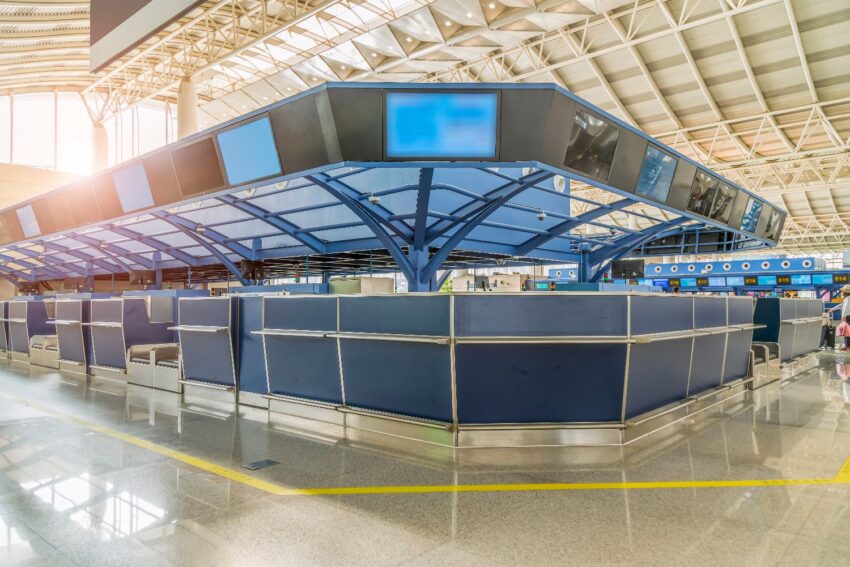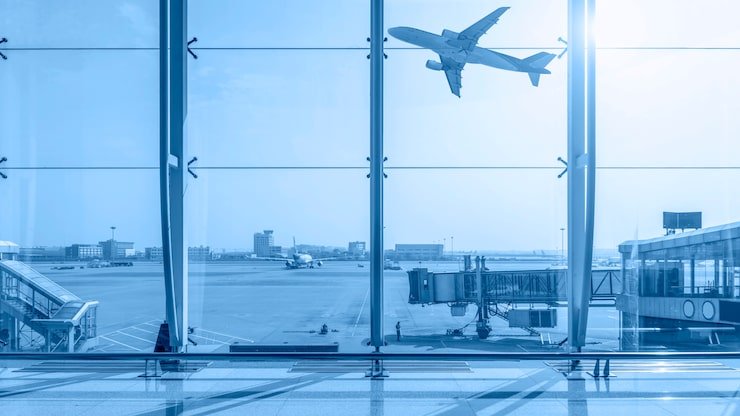Published on
September 21, 2025

A large-scale cyberattack has recently wreaked havoc at some of Europe’s busiest airports, causing widespread flight delays and cancellations. This cyber incident has affected key hubs such as London Heathrow, Berlin, Brussels, Dublin, and Cork, paralyzing key airport operations. The disruptions, which primarily impacted electronic check-in and baggage handling systems, have left passengers stranded in long queues and facing serious travel uncertainty. Authorities in both the United Kingdom and Germany have launched investigations into the origins of the attack, with many security experts speculating that the incident may be state-sponsored. Several lawmakers in the UK have expressed concern that Russia could be behind the attack, citing recent tensions with the country following military airspace violations.
The cyberattack has raised serious concerns about the vulnerability of critical European infrastructure to cyber threats, and experts fear that this could be part of a larger strategy of hybrid warfare targeting key sectors of the continent’s economy. As investigations continue, passengers and airlines are urged to stay informed and prepare for further disruptions as airport authorities scramble to restore full operations.
Massive Flight Delays and Cancellations at Europe’s Major Airports
The cyberattack primarily targeted the electronic check-in systems at some of the busiest airports in Europe, creating a chaotic scene for travelers across the affected regions. These systems were critical to streamlining airport operations, especially for large crowds traveling during peak hours. The sudden disruption led to:
- Long queues at check-in counters and baggage claim areas.
- Self-service kiosks and online check-in systems went offline, leaving passengers unable to check in remotely.
- Significant flight cancellations and delays, as airlines struggled to adapt to manual procedures and paper-based systems.
At London Heathrow, one of the world’s busiest international airports, passengers reported being stuck for hours as staff manually processed check-ins, further contributing to the chaos. Similar scenes were reported across other affected airports, including Berlin Brandenburg Airport and Brussels Airport.
Passenger Experiences: Chaos and Frustration
The cyberattack disrupted not just flight schedules but also the passenger experience. Travelers across Europe faced significant inconvenience as they navigated long lines, canceled flights, and delayed departures. According to reports:
- Long queues formed at check-in counters, as airport staff worked tirelessly to manually check in passengers.
- Baggage systems also went offline, causing luggage delays and further frustration for passengers who had to wait for their bags.
- Many travelers found themselves stranded at airports with little information about their flight status.
Passengers reported feeling frustrated and anxious, with some expressing concerns about missing connecting flights or experiencing even longer delays. As staff scrambled to resolve the issue, travelers were left uncertain about when normal operations would resume.
Cybersecurity Concerns: Is Russia Behind the Attack?
The ongoing investigation into the cyberattack has raised significant questions regarding its source. Authorities in the United Kingdom and Germany are leading efforts to determine whether the attack was the result of state-sponsored activity. Security experts have pointed to the possibility of a foreign government being behind the attack, with Russia being one of the primary suspects.
The speculation stems from recent political tensions between Russia and Europe, particularly after Russian military aircraft violated Estonian airspace, causing alarm and sparking renewed concerns about hybrid warfare tactics targeting European infrastructure. Hybrid warfare refers to the use of a range of disruptive tactics, including cyberattacks, to destabilize a country or region without resorting to traditional military force.
The possibility of Russian involvement has been further fueled by the coordinated nature of the cyberattack, which seemed to be designed to cause maximum disruption to airport operations, potentially as part of a broader strategy to destabilize European infrastructure.
Global Impact and Growing Cybersecurity Concerns
The cyberattack has underscored the growing risks faced by critical infrastructure in the digital age. As airports increasingly rely on technology for managing operations, such as check-in systems, baggage handling, and security protocols, they are becoming increasingly vulnerable to cyberattacks. This incident highlights the importance of cybersecurity measures in protecting key infrastructure.
Experts have called for an urgent review of cyber defenses at airports and other critical infrastructure sites across Europe and the world. This incident may serve as a wake-up call for other countries and industries to prioritize cybersecurity in order to safeguard against similar attacks in the future.
Investigation and Response: Restoring Operations
Authorities at the affected airports have been working around the clock to restore normal operations. While many airports have resumed partial services, full restoration of systems is still underway. Security experts have warned that it may take several days or even weeks to fully recover from the cyberattack’s effects.
Passengers are advised to:
- Monitor flight status regularly for updates on delays and cancellations.
- Arrive early at the airport to allow time for additional security and check-in procedures.
- Prepare for manual check-in procedures as airports continue to work on restoring their systems.
As authorities investigate the source of the attack, it remains unclear when full recovery will occur. Meanwhile, passengers are advised to stay informed through official airport communications and airline channels.
Europe’s Vulnerability to Cyberattacks: A Growing Threat
This cyberattack is not an isolated incident. It is part of a growing trend of cyber threats targeting critical infrastructure across the globe. In recent years, airports, government institutions, and other vital sectors have been increasingly targeted by cybercriminals and state-sponsored actors. This rise in cyber threats calls for stronger defenses and proactive measures to safeguard essential services from disruption.
As cybersecurity experts continue to investigate the origins of the cyberattack, this incident is likely to prompt a broader conversation about security protocols and the need for global cooperation to prevent future attacks. The European Union and other international bodies are likely to take further steps to enhance cyber resilience across the continent.
Implications for the Travel and Tourism Industry
The cyberattack has serious implications for the travel and tourism industry, which is already facing challenges due to ongoing disruptions and uncertainties in the global market. The attack has not only affected passengers but also airlines, which have been forced to adapt to manual systems during peak travel periods.
- Airlines: Many airlines have had to deal with flight delays and cancellations, which could affect their operational efficiency and customer satisfaction.
- Travelers: The incident has led to frustrations among travelers, with long wait times and uncertainty about flight status.
This cyberattack serves as a reminder to the travel industry about the critical need for investment in cybersecurity. As travel continues to grow globally, it is essential to ensure that airports and airlines have the tools and protocols in place to protect against cyber threats.
Conclusion: The Road to Recovery
The ongoing investigation into the cyberattack on major European airports will likely take weeks to fully resolve. As airport operations are slowly restored, passengers are advised to stay informed and be prepared for further disruptions. Authorities are continuing to investigate the origins of the attack, with many speculating that Russia may be involved due to the recent geopolitical tensions.
In the wake of the disruption, it is clear that cybersecurity will play an increasingly important role in the protection of critical infrastructure. The travel industry must adapt to this new reality by prioritizing cyber defense strategies and ensuring that systems are in place to minimize the impact of future cyberattacks.








